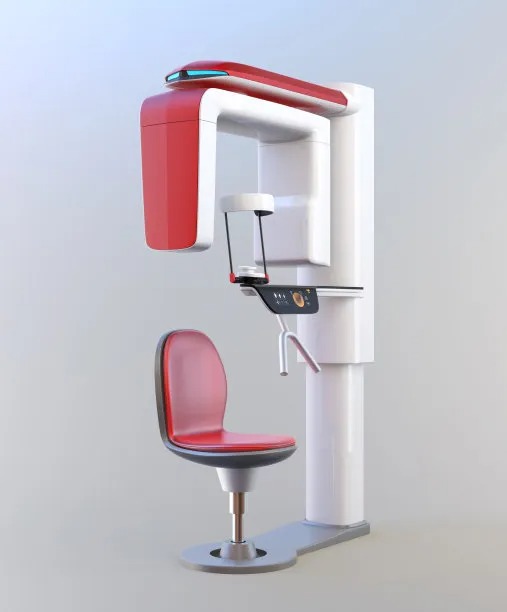Summary: Dental fillings are essential procedures to save damaged teeth, but they require proper care both before and after the appointment for optimal oral health. This article highlights the crucial precautions to consider before getting a dental filling, including the importance of consultation and understanding the procedure. It then focuses on pre-care measures that include oral hygiene practices and dietary considerations. Aftercare is equally significant as it addresses post-operative care, pain management, and the long-term maintenance of dental fillings. By adhering to these essential precautions, patients can ensure the effectiveness of their dental treatments and promote better overall oral health.
1. Importance of Dental Consultation

Before undergoing a dental filling procedure, its vital to have an in-depth discussion with your dentist. This consultation allows you to understand the extent of decay or damage and the type of filling material that is suitable for your situation. Specific materials, such as amalgam, composite, or ceramic, have different characteristics and costs associated with them. Knowing what is best for your dental health is crucial.
Additionally, during this consultation, you should be open about your medical history. Discussing any allergies or previous dental experiences can help your dentist tailor the procedure to your needs, avoiding potential complications. This helps build trust and ensures that you feel comfortable proceeding.
Lastly, take this opportunity to address all your concerns. If you have anxiety about dental work, discussing it with your dentist can lead to strategies that will alleviate your fears, making the procedure smoother for you.
2. Pre-Care Measures for Optimal Results
Oral hygiene is of utmost importance before getting a dental filling. Ensuring your mouth is free from plaque can drastically improve the outcome of the procedure. Brush thoroughly and floss to eliminate food particles and bacteria. It鈥檚 recommended to follow a meticulous oral hygiene routine in the days leading up to your appointment.
Dietary considerations also play a pivotal role in your oral health leading up to the procedure. Avoid overly sugary foods or beverages, which can exacerbate tooth decay. Additionally, steer clear of hard foods that can worsen existing damage in impacted areas. Eating a balanced diet rich in calcium and vitamins promotes your overall dental health.
If prescribed by your dentist, speaking to them before taking any medications to reduce anxiety or discomfort can also be beneficial. Following their guidance in the days prior can help prepare you mentally and physically for the visit.
3. Post-Operative Care for Dental Fillings
After receiving a dental filling, its vital to follow your dentists aftercare instructions for optimal recovery. These instructions may include avoiding the consumption of certain foods while the filling is still setting. Soft foods are usually recommended for the first few days post-treatment to prevent any added pressure on the filling.
Pain management is another essential aspect. It鈥檚 common to experience some discomfort after the anesthesia wears off; therefore, taking over-the-counter pain relief as directed can help minimize discomfort. Always consult your dentist before taking any new medications to ensure they are safe for you to use.
Its also crucial to monitor your filling in the weeks following the procedure. Pay attention to any changes, such as sensitivity to hot or cold, and report these changes to your dentist right away. Early detection of issues can prevent further damage and ensure the longevity of your filling.
4. Long-Term Maintenance of Dental Fillings
Long-term care for dental fillings starts immediately after the procedure. Maintaining a consistent oral hygiene routine is paramount. Brush twice a day and floss daily to prevent decay around the filling. Additionally, consider using a fluoride toothpaste that can provide added protection to your teeth.
Regular dental visits for check-ups and cleanings are essential. Scheduling appointments at least twice a year helps your dentist monitor the condition of the filling and overall oral health. During these check-ups, any emerging issues can be identified early and treated effectively.
Finally, educate yourself about the signs of dental problems. Being knowledgeable about potential issues, such as sensitivity or discoloration around a filling, empowers you to seek timely intervention from your dentist, thereby prolonging the life of your dental work.
Summary:
In conclusion, ensuring optimal oral health requires considerable attention to both pre- and post-operative care when getting a dental filling. Proper consultation, pre-care measures like maintaining oral hygiene, following post-operative care instructions, and focusing on long-term maintenance are all indispensable components of this process. Each step plays a significant role in promoting the durability of dental fillings and supporting better overall oral health.
This article is compiled by Vickong Dental and the content is for reference only
Vickong Dental
Vickong Dental is a large medical group established in Hong Kong in 2008 by professors from well-known medical universities in Guangdong and Hong Kong, as well as medical doctors from key national '985' universities (including Master's supervisors and senior professors). The chain of branches brings together expert dentists with PhDs and Master's degrees from Hong Kong and Mainland China, committed to providing high-quality dental treatment.
"Vickong Dental Practices the University Motto of 'Healing and Serving Society,' with a Stable Operation for Sixteen Years. It Has Been honored with Hong Kong Enterprise Leaders's Choice,' and is a Global Trusted Implant Center for the Nobel Implant System. Recommended by Hong Kong Metro Broadcast and Guangdong Television, it Serves Customers from Over Thirty Countries and Regions, Gaining the Trust and Favor of Citizens from the Guangdong-Hong Kong-Macau Greater Bay Area and Surrounding Cities.

Thousands of customers' unanimous praise
The most recognized and highly recommended dental service by customers in the Guangdong-Hong Kong-Macau Greater Bay Area
We Ensure You Receive Detailed Care and Attention Here
Hong Kong standards, Shenzhen prices, Your Trusted English-speaking dentists

Vickong Dental Medical-Grade Instrument Disinfection Process
Vickong Dental Medical-Grade Instrument Disinfection Process

Vickong Dental Chain: A Warm and Comfortable Environment for Treatment






Appointment Hours

Q&A
Why choose Vickong Dental?
Vickong Dental practices the university motto 「Medicine to Benefit Society」, with each branch bringing together highly qualified dentists with doctoral and master’s degrees from Hong Kong and the Mainland, and has maintained seventeen years of steady operation。Recipient of 「2024 Hong Kong Enterprise Leaders Brand」, 「2025 Hong Kong Enterprise Leaders Brand」, a Nobel Biocare Global Trusted Implant Center, and a brand recommended by Metro Radio Hong Kong and Guangdong TV。
To date, we have served customers from more than thirty countries and regions,earning exceptionally high word-of-mouth recognition and trusted recommendations from residents across the Guangdong-Hong Kong-Macao Greater Bay Area and surrounding cities
We have eight major branches in Zhuhai、Shenzhen,and a consultation and service assurance center in Hong Kong,so you can book a free consultation at any time for any questions,which is very reassuring.
If I do not accept the quotation after the CT scan, will I be charged??
No! As long as the actual treatment has not started, you will not be charged any fees.
Will there be any additional charges during the treatment process?
No, there won’t be any additional charges. Before treatment begins, we will clearly explain the treatment plan and its corresponding fees. Only after the patient agrees and signs the consent form will we proceed with the dental service.
Can I pay in Hong Kong dollars?
Yes. Vickong Dental accepts payment in Hong Kong dollars. The amount will be converted based on the exchange rate of the day, and the applicable rate will be clearly communicated to you in advance.
Can I reschedule my appointment at any time?
Yes. Please contact us via **WeChat** or **WhatsApp** as early as possible, providing your original appointment time and details, along with your preferred new date and time slot for rescheduling.













